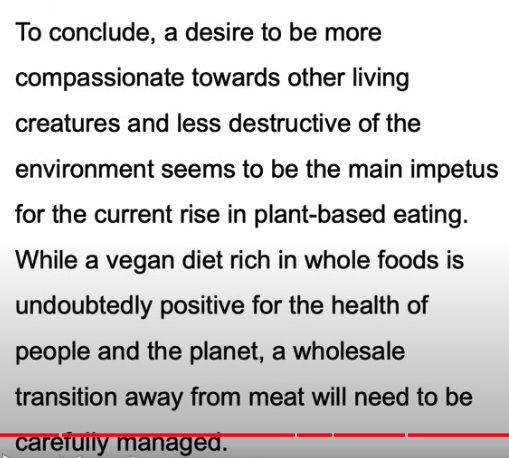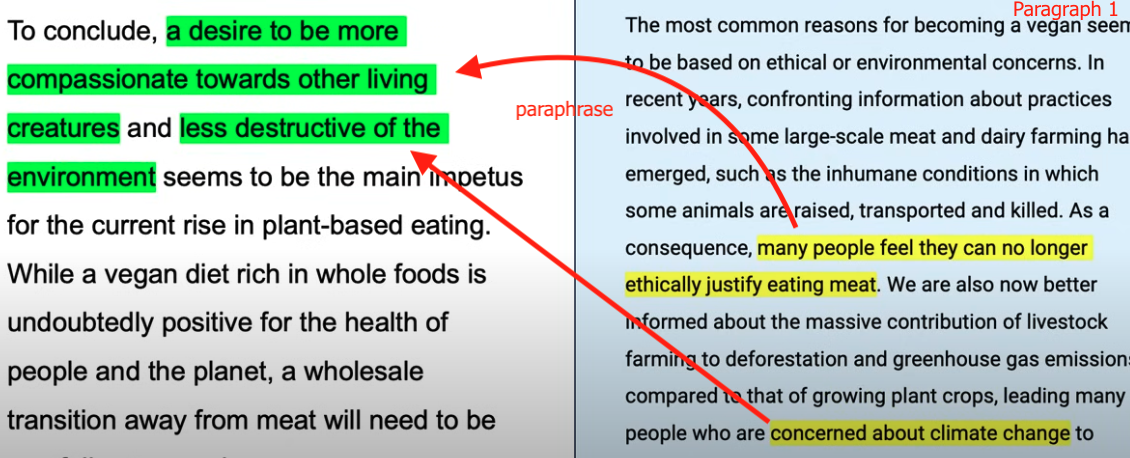Sentence Types
1. Which of the following is a simple sentence?
A) Although she was tired, she finished her homework. (complex sentence)
B) She finished her homework and went to bed. (compound predicate, simple sentence)
C) The teacher arrived, and the students opened their books. (compound sentence)
D) He ran quickly. √
2. What type of sentence is this: “She loves to read, and she visits the library often”?
A) Simple
B) Compound √ (two simple sentences combined by a comma and conjunction ‘and’)
C) Complex
D) Compound-complex
3. Identify the type of the following sentence: “Because the rain was heavy, the event was postponed.”
A) Simple
B) Compound
C) Complex –
Dependent Clause – Subordinate Conjunction ‘Because’ (1 dependent). ** ‘But’ is a coordinate conjunction
Independent clause – the event was postponed (1 independent)
D) Compound-complex
4. Which sentence is a compound-complex sentence?
A) She cried because it was raining, and she couldn’t go to the park.
Compound (2 simple) – She cried. She couldn’t go to the park.
Complex – Because it was raining (subordinate)
B) After the rain stopped, she went outside to play.
C) The dog barked loudly.
D) He likes to swim and to play basketball.
5. Choose the compound sentence from the options below.
A) When he finished his homework, he went to sleep. (has subordinate conjunction ‘When’)
B) She was hungry, so she made a sandwich. √ (two simple sentences combined with a comma and conjunction ‘s’)
C) Although it was late, they decided to go out. (has subordinate conjunction ‘Although’)
D) He studied hard but still failed the test. (simple sentence with predicate)
6. What makes a sentence complex?
A) It has two independent clauses.
B) It contains one independent clause and at least one dependent clause. √
C) It has three or more independent clauses.
D) It combines elements of compound and complex sentences.
7. Identify the sentence type: “Although he was nervous, he spoke clearly and confidently during his presentation.”
A) Simple
B) Compound
C) Complex √
Dependent clause – Although he was nervous
Independent clause –
Subject – He
predicate – [spoke (v)
clearly and confidently (compound adv)
during his presentation (adverbial)
]
D) Compound-complex
The answer key says its D. But this wrong because in order for it to be compound complex, we need 1 dependent, 2 independent:
Dependent clause – “Although he was nervous”
“spoke clearly and confidently during his presentation” is a SIMPLE PREDICATE where:
spoke – verb
clearly and confidently – compound adverb
during his presentation – adverbial
As defined in grammarly’s simple sentence a simple sentence can indeed contain a compound predicate.
This is a simple sentence with a compound predicate:
The cat [cheated and caught the mouse].
8. Which of the following is a simple sentence?
A) He laughed loudly when he saw the puppy. (1 indep, 1 dependent subordinate conjunction “when”)
B) She likes coffee, but she doesn’t drink it often. (X, this is a compound sentence)
C) The car stopped. (√ nice and simple)
D) Before we go out, we should check the weather. (X, this is complex sentence)
Participles Practice
1)
A) No present participle
B) swimming pool is a compound noun
C) crying can be used as a present participle.
For example, She is crying at the park.
Here its used as an adjective to modify ‘baby’. √
D) running is used as a main verb here
2)
A) broken. Broken is used as a past participle. For example, I have broken the oath.
Here, it is used as an adjective. √
B) X used as a verb
C) X used as a verb
D) no past participle
3)
A) √ present participle: The are barking at us. Barking modifies ‘dogs’.
B) used as main verb
C) no present participle
D) past participle
4)
A)
5) C
A) used as main verb
B) running can be used as present participle.
C) We cannot use “amazing” in present participle. i.e She is amazing the crowd. X
D) used as main verb
6)
A) used as verb
B) √ bake baked baked. Used in front of noun cookies.
C) Used as main verb in present perfect
D) no past participle
7)
A) Laughing is a present participle. But loudly is not a noun.
B) √
* present participle? They are laughing at us. (yes)
modify a noun? “laughing crowd” A crowd that is laughing (yes)
C) used as main verb
D) used as main verb in future tense.
8)
A) √
past participle – write wrote written. √
modifying a noun – “written exam” An exam that needs to be written. √
B) Used as main verb
C) no past participle
D) no past participle
Gerunds/Infinitives
1) C
2)
A) Subject
B) verb
C) √ infinitive as object
D) prepositional as object complement
3)
A) no gerund
B) win + ing = winning
C) no gerund
D) no gerund
4)
A) no infinitive
B) no infinitive
C) ‘to eat’ is an infinitive
D) no infinitive
5)
She (subj)
mentioned (verb)
go-ing (gerund, direct object) –> (B)
to the store (prepositional object complement)
6) A
7)
A) ‘without’ is a preposition
B) no gerund
C) no gerund
D) no gerund
8)
A) no gerund
B) Eating is eat + ing
C) no gerund
D) no gerund
Transitive/Intransitive Verbs
a verb is transitive IF it has a direct object.
Any other situation, it is intransitive
1.
A) She (s) laughed (intransitive verb) loudly (adv). // adverb after the verb
B) √
He (subj) carried (transitive verb) the bag (direct object).
C) They(subj) sleep (intransitive verb) early (adj). // adjective after the verb, so verb is intransitive.
D) Birds(s) fly(intransitive verb). // no direct object
2.
She (subj)
completed (transitive verb) (A)
the assignment (direct object)
before dinner. (adverb phrase)
3. B
4. B
The cat (s)
sleeps (v)
on (preposition)
the sofa (obj)
Because ‘on’ is a preposition, then sleep is intransitive.
5. C
6. A
7. B
8.
A) Please bring paper.
B) I throw the ball.
C) I laugh him (X) I laugh [at] him. √ This is intransitive
D) I eat dirt.
Complements/Direct Objects
1. C The flowers(s) smell (v) fragrant (subj compl)
Subject Complements can be noun or adjective.
The noun is called predicate nominative.
The adjective is called predicate adjective.
2. C
3. D
4. D
5. C
6. C
7. B
8. C
9. C
10. D
She (s) left (v) the keys (obj) on[pre] the table [obj of prep]
11.
Direct object test:
* find verb (taught)
* ask what (taught what? –> new concept)
C
12. D
The book (s) was (lv) interesting (subj compl, adj).
The sky (s) seems (lv) blue (subj compl, adj).
My favorite color (s) is (lv) blue (subj compl, adj).
She (s) remains (v) a close friend ().
13. B
She sent her parents a postcard from Italy.
Indirect object test:
* find verb (sent)
* for whom (sent to whom? –> the parents)
14. C
The jury (s) found(transitive verb) the defendant(direct obj) guilty (obj compl).
Clauses and Phrases
1. C
2. A
3. A i.e We will have dinner [before the movie(s) starts (v)]
4. A adjectival phrase – (an old red sedan)
5. D
6. A
7. A
Starts with relative pronoun What/When/Where/Why/How..etc
What (relative pronoun) she said was surprising.
8. C
9. C
Verb Phrase is a phrase that has a main verb and any other helping verbs
https://www.grammar-monster.com/glossary/verb_phrase.htm
Let’s see how ‘to have’ is used as auxiliary verb for verb phrases:
We [were (to have) landed] here hours ago!
were = auxiliary verb
to have = auxiliary verb
landed = main verb
They [had (to have) seen] it!
had = auxiliary verb
to have = auxiliary verb
seen = main verb
To have, to be, to do are all auxiliary verbs.
But [to win] is not an auxiliary verb, so:
to win the game is an adverbial phrase that describes the “WHY” for the sentence.
10. A
11. B
12. A The flowers [in the garden]
13. C
14. A
Which sentence contains a participial phrase?
A) √ Participial Phrase means it uses a present or past participle. So sleeping is it.
B) no participle
C) no participle
D) no participle
15. A
Pay attention to the word “noun clause”. Clause means to have a subj and a verb.
noun clause = “that she is coming”. Remember that noun clause starts with relative noun.
16. B
* Clause means to have a subj and a verb.
* Adverbial clause is a dependent clause.
So,
A) X
B) √ Dependent clause means it uses subordinate term “Before”, which gives more information about the time.
Before he leaves the house, i.e [he takes a dump].
C) X
D) X
Appositive
noun or noun phrase that sits next to another noun to renames it, provides additional information.
– essential (restrictive) – no commas
– non-essential (non-restrictive) – comma
1) C
2) B
3) A
4) A
5)
A) This is actually wrong. Because non-essential means information that is not necessary.
B) √ The non-essential here is ‘which is very deep’. It just adds extra info about the lake.
C) X Describes the lake’s attribute as deep. Does not tell us which lake.
D) X Deep is not a condition that freezes.
6) B
7) D
A) an inventor here is required because we can’t just do “Thomas Edison developed many devices”.
B) no comma
C) no comma
D) “A tool for communication” is just a bonus. We do not need it in order to understand that the smartphones are found everywhere.
8) A
9) B
10) B
11) A
12) B
13) B
14) A
Misplaced Modifiers








